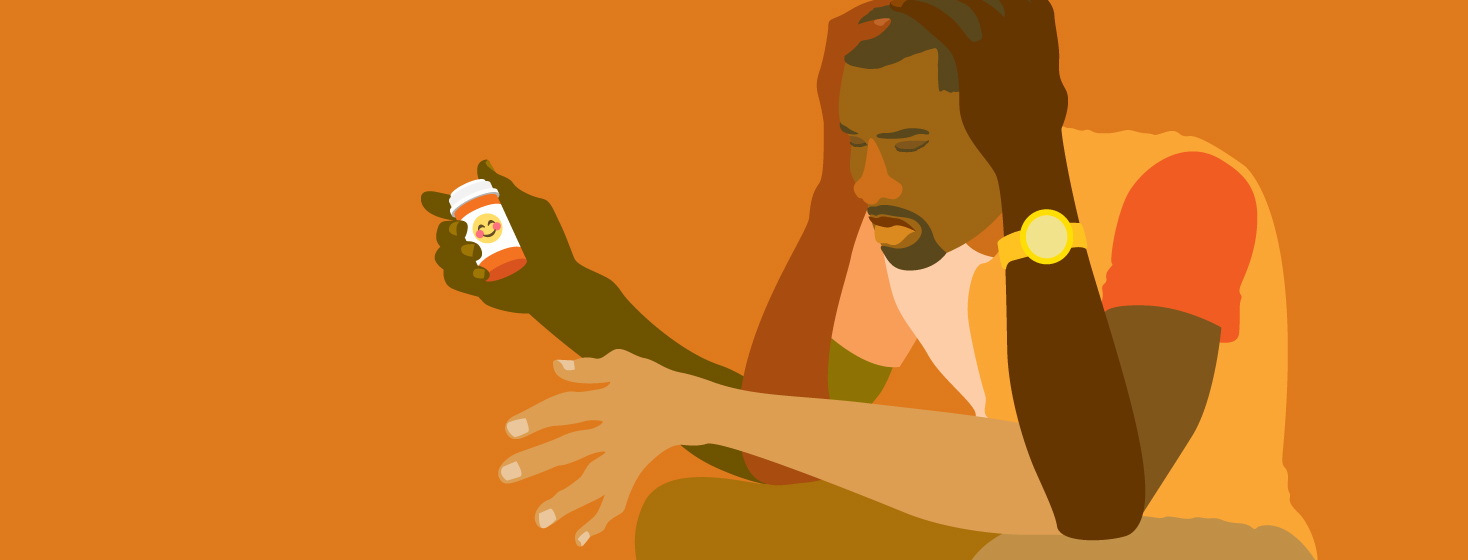Depression and Psychotropic Medication
Some of my own story may contradict what I tell you here. As you read what I’ve written, please keep in mind that everybody’s experience of depression is different, and everyone reacts to psychotropic medication differently. There are so many nuances to prescribing medication, including, first, finding the correct medication, and secondly, finding the optimal dosage. And unlike medications for physical illness, psychotropic medication often takes at least four weeks to be able to tell if it’s working.1
Despite what you may have heard, you don’t necessarily need to be on an antidepressant for an extended period. Some people fear becoming “dependent” on them. Some fear that it will change or alter their personality in some way. These are myths that feed the stigma surrounding antidepressants (more on that below). If you believe you could benefit from medication, please keep reading.
My Medication Journey
In my mid to late twenties (I’m now sixty-three), I was diagnosed with anorexia, major depressive disorder, severe, recurrent with psychotic features, and borderline personality disorder. I’ve been on multiple medication cocktails (a medication cocktail is a combination of numerous medications) that include antidepressants, mood stabilizers, antipsychotics, benzodiazepines, and stimulants.
I’ve been stable on a combination of two antidepressants and a second-generation antipsychotic for the last ten years. Not coincidentally, my last admission to a psychiatric hospital and my most recent suicide attempt were also ten years ago. These medications have literally been a lifesaver.
I will be on these medications for the rest of my life. My father suffered from debilitating depression that he numbed with alcohol for a good part of his life. When he finally got sober, he retreated from the world and became a recluse. In the final years of his life, he relied on my brother and me to do all his shopping and other tasks that normally would take him outside his home. He so neglected his physical health that he died of sepsis in a palliative care facility because he ignored the initial symptoms of an infection.
Depression is hard-wired into my DNA, so intertwined into its strands, that to try to separate them would mean destroying them. I’ve learned the hard way there are no guarantees. I’ve been on medication that was effective before and then it stopped working and I plunged into a suicidal depression much in the same way as a Cessna whose engine lost power plummets to earth.
The Power of the Combination Treatment
Studies have shown that to optimize your chance of a successful recovery from mental illness a combination of psychotherapy and medication is more effective than either alone.2 The key is the efficacy this combination has on both functioning and quality of life. This is significant as a different study states that “there is evidence to suggest that psychiatric disorders are strongly associated with quality of life (QOL) and social/occupational functioning, frequently at levels that are equal to or exceed those of medical illness.”3
When we talk about the ability to function, the areas that we consider include activities of daily living (personal hygiene and grooming, dressing, toileting, eating), social functioning, thinking, concentration, and judgment, and, the ability to adapt to stress.
How Do I Know If I Need Medication?
With depression, the major symptoms to be looking out for include anhedonia (a loss of interest in the things that once brought you pleasure), a change in your appetite (either eating more or less), a change in your sleep patterns, difficulty concentrating, persistent sadness or depressed mood, isolation from family or friends, or thoughts of suicide.4
You might be surprised to know that your depressive symptoms warrant a conversation with a psychiatrist if you have any combination of them for more than seven days in a two-week period.5
The Stigma
Eschew the thought that you should be able to “tough it out.” Depression is NOT a weakness or a character flaw. It is a biological illness when your brain does not have enough serotonin. That’s why the commonly prescribed antidepressants — Prozac, Zoloft, and Lexapro — are called SSRIs or selective serotonin re-uptake inhibitors that work by increasing the level of serotonin in your brain. If you had diabetes, would you hesitate to give yourself the insulin that your pancreas was failing to produce?
Take comfort in knowing you are not alone. As of 2018, over 13% of adults in the United States used antidepressants.6
How to Talk to Your Provider
You may feel some trepidation at broaching this subject with a psychiatrist — a psychiatric nurse practitioner is also licensed to prescribe medication — but a conversation starter can be as simple as saying that you’ve been depressed, and you want to know if medication can be helpful. Be sure to tell him or her the symptoms you’ve been experiencing and highlight the ones that are causing you the most distress, the ones that are most impacting your life.
Listen and ASK QUESTIONS. This is the time when you want to be a partner in your care. Ask questions about how long before you can expect to feel an improvement, side effects, why he or she chose that medication over another one, and any other questions that come to mind. There are no dumb questions. You want to make an informed decision.
Doing the Work
I will leave you with this thought. No pill is a magic pill. There will always be work to do in therapy. Medication will get you to this point, but insight, awareness, and change will come through the work that your therapist and you accomplish together.
Disclaimer: The disclosure of my use of medication is for informational purposes only. Discuss making any changes to your medication regimen or starting any new medications with your physician before taking any course of action.
